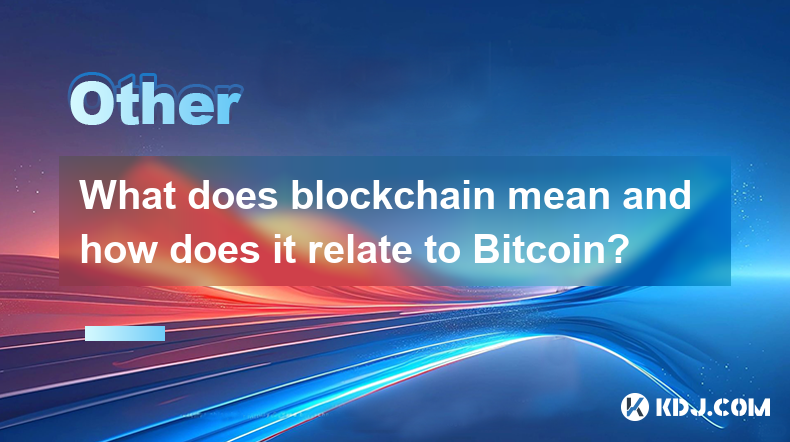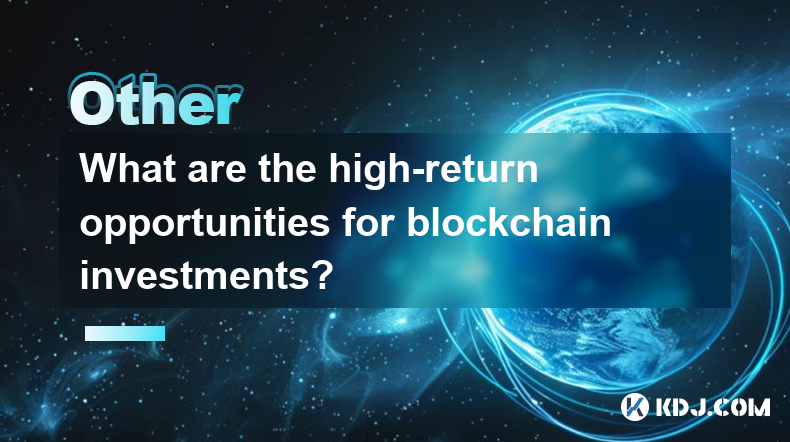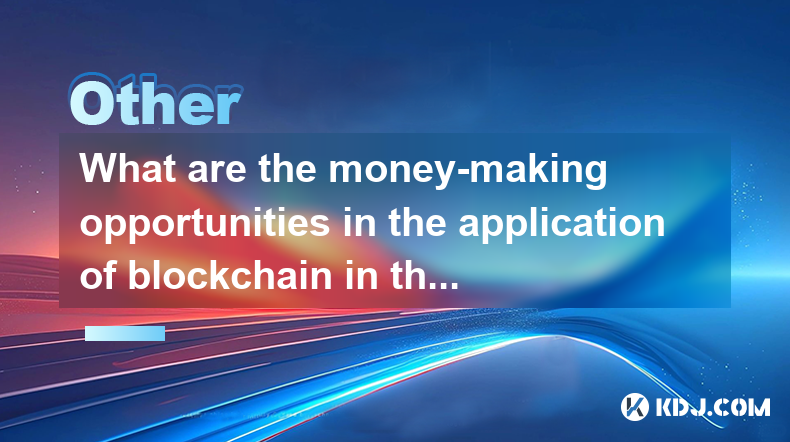-
 Bitcoin
Bitcoin $76,479.4701
-3.52% -
 Ethereum
Ethereum $1,469.1142
-5.46% -
 Tether USDt
Tether USDt $0.9993
-0.03% -
 XRP
XRP $1.7902
-4.83% -
 BNB
BNB $551.0674
-0.78% -
 USDC
USDC $1.0003
0.02% -
 Solana
Solana $105.4201
-1.56% -
 TRON
TRON $0.2301
0.50% -
 Dogecoin
Dogecoin $0.1423
-4.38% -
 Cardano
Cardano $0.5589
-4.51% -
 UNUS SED LEO
UNUS SED LEO $9.0173
0.56% -
 Toncoin
Toncoin $3.0027
-2.56% -
 Chainlink
Chainlink $10.9146
-4.73% -
 Stellar
Stellar $0.2207
-4.45% -
 Avalanche
Avalanche $16.1527
-4.24% -
 Shiba Inu
Shiba Inu $0.0...01066
-6.81% -
 Sui
Sui $1.9318
-3.99% -
 Hedera
Hedera $0.1462
-4.08% -
 MANTRA
MANTRA $6.2098
-1.18% -
 Dai
Dai $1.0001
0.01% -
 Bitcoin Cash
Bitcoin Cash $268.3547
-2.84% -
 Polkadot
Polkadot $3.3678
-6.32% -
 Litecoin
Litecoin $69.1437
-2.09% -
 Ethena USDe
Ethena USDe $0.9986
-0.03% -
 Bitget Token
Bitget Token $3.9888
-4.59% -
 Hyperliquid
Hyperliquid $11.6557
0.72% -
 Pi
Pi $0.5672
-1.97% -
 Monero
Monero $196.0247
-4.01% -
 OKB
OKB $51.1597
0.14% -
 Uniswap
Uniswap $4.7818
-6.32%
What does blockchain mean and how does it relate to Bitcoin?
Blockchain, initially developed for Bitcoin, ensures secure, transparent transactions across industries like finance and healthcare, despite facing scalability and energy challenges.
Apr 07, 2025 at 03:28 am

Blockchain is a decentralized and distributed digital ledger technology that records transactions across numerous computers in a way that ensures the data cannot be altered retroactively without the alteration of all subsequent blocks and the consensus of the network. It was originally devised for the digital currency, Bitcoin, but has since found applications in numerous other fields. The core idea behind blockchain is to enable secure, transparent, and tamper-proof transactions without the need for a central authority.
The structure of a blockchain consists of a chain of blocks, where each block contains a list of transactions. These blocks are linked using cryptographic hashes, ensuring that once data is recorded, it cannot be changed without changing all subsequent blocks. This makes blockchain highly secure and resistant to fraud. Each block typically includes a timestamp, a cryptographic hash of the previous block, and transaction data. The decentralized nature of blockchain means that it is maintained by a network of computers, called nodes, which validate and record transactions.
How Blockchain Works
Blockchain operates through a process known as mining, where participants, known as miners, use computational power to solve complex mathematical problems. Once a problem is solved, a new block is added to the blockchain, and the miner is rewarded with cryptocurrency, typically Bitcoin. This process ensures the integrity and security of the blockchain, as altering any block would require re-mining all subsequent blocks, which is practically infeasible due to the computational power required.
The consensus mechanism is another crucial aspect of blockchain. It is the process by which the network agrees on the validity of transactions. The most common consensus mechanism is Proof of Work (PoW), used by Bitcoin, where miners compete to solve cryptographic puzzles. Another popular mechanism is Proof of Stake (PoS), where validators are chosen to create new blocks based on the number of coins they hold and are willing to "stake" as collateral.
The Relationship Between Blockchain and Bitcoin
Bitcoin, created in 2009 by an anonymous person or group using the pseudonym Satoshi Nakamoto, was the first application of blockchain technology. Bitcoin uses blockchain to maintain a secure and decentralized record of transactions. Each Bitcoin transaction is recorded on the blockchain, ensuring that the same coin cannot be spent twice (the double-spending problem). This is achieved through the consensus mechanism, where miners validate transactions and add them to the blockchain.
The relationship between Bitcoin and blockchain is symbiotic. Bitcoin relies on blockchain to function, and the success of Bitcoin has driven the development and adoption of blockchain technology. However, blockchain is not limited to Bitcoin; it has been adapted for use in other cryptocurrencies like Ethereum, as well as in various industries such as finance, supply chain management, and healthcare.
Benefits of Blockchain Technology
One of the main benefits of blockchain is its security. The decentralized nature of blockchain makes it highly resistant to hacking and fraud. Since data is stored across a network of computers, there is no single point of failure. Additionally, the use of cryptographic hashes ensures that once data is recorded, it cannot be altered without consensus from the network.
Another benefit is transparency. All participants in a blockchain network have access to the same data, ensuring that transactions are visible and verifiable by all. This can increase trust among parties, as they can independently verify the integrity of the data.
Blockchain also offers efficiency. Traditional financial transactions often involve intermediaries, which can slow down the process and increase costs. Blockchain enables peer-to-peer transactions without the need for intermediaries, resulting in faster and cheaper transactions.
Challenges and Limitations of Blockchain
Despite its many benefits, blockchain technology faces several challenges. One of the main challenges is scalability. As the number of transactions increases, the size of the blockchain grows, which can lead to slower transaction processing times and higher costs. Various solutions, such as sharding and off-chain transactions, are being explored to address this issue.
Another challenge is energy consumption. The mining process, particularly in Proof of Work systems like Bitcoin, requires significant computational power and energy. This has led to concerns about the environmental impact of blockchain technology. Efforts are being made to develop more energy-efficient consensus mechanisms, such as Proof of Stake.
Regulatory uncertainty is another challenge facing blockchain. As a relatively new technology, the regulatory landscape is still evolving. Different countries have different approaches to regulating blockchain and cryptocurrencies, which can create uncertainty for businesses and investors.
Use Cases of Blockchain Beyond Bitcoin
While Bitcoin was the first application of blockchain, the technology has since been adopted in various other fields. In the financial industry, blockchain is being used for cross-border payments, trade finance, and asset tokenization. For example, banks are using blockchain to settle transactions more quickly and at lower costs.
In supply chain management, blockchain is being used to create transparent and tamper-proof records of the movement of goods. This can help to reduce fraud, increase efficiency, and improve traceability. Companies like Walmart and Maersk are using blockchain to track shipments from origin to destination.
In healthcare, blockchain is being used to securely store and share patient data. This can improve the interoperability of health records and enhance patient privacy. For example, MedRec is a blockchain-based platform that allows patients to control access to their medical records.
Future of Blockchain and Bitcoin
The future of blockchain and Bitcoin is closely intertwined. As blockchain technology continues to evolve, it is likely to find new applications and improve existing ones. For Bitcoin, advancements in blockchain could lead to increased scalability and reduced energy consumption, making it more viable as a mainstream currency.
The adoption of blockchain by various industries is likely to drive further innovation and development. As more companies and institutions recognize the benefits of blockchain, we can expect to see increased investment and research in the field. This could lead to the development of new consensus mechanisms, improved scalability solutions, and more user-friendly applications.
Common Questions Related to Blockchain and Bitcoin
What is the main difference between blockchain and Bitcoin?
Blockchain is the underlying technology that enables secure, decentralized transactions, while Bitcoin is a cryptocurrency that uses blockchain to record transactions. Blockchain can be used for many applications beyond Bitcoin.How does blockchain ensure security?
Blockchain ensures security through its decentralized nature and the use of cryptographic hashes. Data is stored across a network of computers, and once recorded, it cannot be altered without consensus from the network.What are some challenges facing blockchain technology?
Some challenges include scalability, energy consumption, and regulatory uncertainty. Solutions are being developed to address these issues, such as more energy-efficient consensus mechanisms and improved scalability solutions.Can blockchain be used for purposes other than cryptocurrency?
Yes, blockchain has applications in various industries, including finance, supply chain management, and healthcare. It can be used to create secure, transparent, and efficient systems for recording and sharing data.How does Bitcoin use blockchain?
Bitcoin uses blockchain to maintain a secure and decentralized record of transactions. Each transaction is recorded on the blockchain, ensuring that the same coin cannot be spent twice. Miners validate transactions and add them to the blockchain through a process called mining.What is the future of blockchain and Bitcoin?
The future of blockchain and Bitcoin is likely to involve further innovation and adoption. Advancements in blockchain technology could lead to increased scalability and reduced energy consumption for Bitcoin, while the adoption of blockchain by various industries could drive further development and investment in the field.
Disclaimer:info@kdj.com
The information provided is not trading advice. kdj.com does not assume any responsibility for any investments made based on the information provided in this article. Cryptocurrencies are highly volatile and it is highly recommended that you invest with caution after thorough research!
If you believe that the content used on this website infringes your copyright, please contact us immediately (info@kdj.com) and we will delete it promptly.
- "Cardano (ADA) Price Could Dip Below $0.60, Following Previous Market Cycle"
- 2025-04-09 05:10:12
- BONK, the well-known meme coin, has risen over 35% in the last week, attracting meme coin investors in the market. So, what caused this rally?
- 2025-04-09 05:10:12
- Bitcoin (BTC) Investors May Not Exactly Feel It, but BTC Has Been a Relatively Good Bet
- 2025-04-09 05:05:12
- Donald's Bitcoin (DONBTC) Could Turn Early Investors into Multi-Millionaires, Like Shiba Inu (SHIB) and Dogecoin (DOGE) Did
- 2025-04-09 05:05:12
- 6 Upcoming Kraken Listings That Could Be the Next Big Thing in Crypto
- 2025-04-09 05:00:13
- COTI Unveils New Privacy-Focused Blockchain to Reshape Web3 Transactions
- 2025-04-09 05:00:13
Related knowledge

Is the ranking of Chinese blockchain apps real and reliable?
Apr 04,2025 at 09:01pm
The ranking of Chinese blockchain apps has become a topic of interest for many in the cryptocurrency community, as it provides insights into the popularity and adoption of blockchain technology within China. However, the reliability and authenticity of these rankings are often questioned. This article aims to delve into the factors that influence these ...

What are the future development trends of blockchain game development?
Apr 03,2025 at 05:00am
Blockchain technology has revolutionized various industries, and gaming is no exception. As we look to the future, several trends are set to shape the development of blockchain games. These trends not only promise to enhance the gaming experience but also to integrate blockchain technology more seamlessly into the gaming ecosystem. Let's explore these t...

What are the high-return opportunities for blockchain investments?
Apr 05,2025 at 02:35pm
Blockchain technology has revolutionized the financial world, offering numerous high-return investment opportunities. These opportunities span various sectors within the cryptocurrency ecosystem, including cryptocurrencies, decentralized finance (DeFi), non-fungible tokens (NFTs), and blockchain startups. Each of these areas presents unique risks and re...

What are the maintenance costs of blockchain system development?
Apr 03,2025 at 06:07pm
The maintenance costs of blockchain system development are multifaceted and depend on various factors. These costs can include technical maintenance, security updates, infrastructure expenses, and personnel costs. Understanding these elements is crucial for anyone planning to develop or maintain a blockchain system. Technical MaintenanceTechnical mainte...

What are the money-making models of blockchain games?
Apr 04,2025 at 02:00pm
Blockchain games have emerged as a revolutionary way for players to earn real money while enjoying their favorite pastime. These games leverage the power of blockchain technology to create unique money-making models that benefit both the players and the developers. In this article, we will explore the various money-making models of blockchain games and ...

What are the money-making opportunities in the application of blockchain in the field of Internet of Things?
Apr 05,2025 at 10:35pm
The integration of blockchain technology with the Internet of Things (IoT) presents numerous money-making opportunities. Blockchain, with its decentralized and secure nature, can revolutionize how IoT devices interact, manage data, and conduct transactions. This article will explore various avenues where entrepreneurs, developers, and investors can capi...

Is the ranking of Chinese blockchain apps real and reliable?
Apr 04,2025 at 09:01pm
The ranking of Chinese blockchain apps has become a topic of interest for many in the cryptocurrency community, as it provides insights into the popularity and adoption of blockchain technology within China. However, the reliability and authenticity of these rankings are often questioned. This article aims to delve into the factors that influence these ...

What are the future development trends of blockchain game development?
Apr 03,2025 at 05:00am
Blockchain technology has revolutionized various industries, and gaming is no exception. As we look to the future, several trends are set to shape the development of blockchain games. These trends not only promise to enhance the gaming experience but also to integrate blockchain technology more seamlessly into the gaming ecosystem. Let's explore these t...

What are the high-return opportunities for blockchain investments?
Apr 05,2025 at 02:35pm
Blockchain technology has revolutionized the financial world, offering numerous high-return investment opportunities. These opportunities span various sectors within the cryptocurrency ecosystem, including cryptocurrencies, decentralized finance (DeFi), non-fungible tokens (NFTs), and blockchain startups. Each of these areas presents unique risks and re...

What are the maintenance costs of blockchain system development?
Apr 03,2025 at 06:07pm
The maintenance costs of blockchain system development are multifaceted and depend on various factors. These costs can include technical maintenance, security updates, infrastructure expenses, and personnel costs. Understanding these elements is crucial for anyone planning to develop or maintain a blockchain system. Technical MaintenanceTechnical mainte...

What are the money-making models of blockchain games?
Apr 04,2025 at 02:00pm
Blockchain games have emerged as a revolutionary way for players to earn real money while enjoying their favorite pastime. These games leverage the power of blockchain technology to create unique money-making models that benefit both the players and the developers. In this article, we will explore the various money-making models of blockchain games and ...

What are the money-making opportunities in the application of blockchain in the field of Internet of Things?
Apr 05,2025 at 10:35pm
The integration of blockchain technology with the Internet of Things (IoT) presents numerous money-making opportunities. Blockchain, with its decentralized and secure nature, can revolutionize how IoT devices interact, manage data, and conduct transactions. This article will explore various avenues where entrepreneurs, developers, and investors can capi...
See all articles






















































































